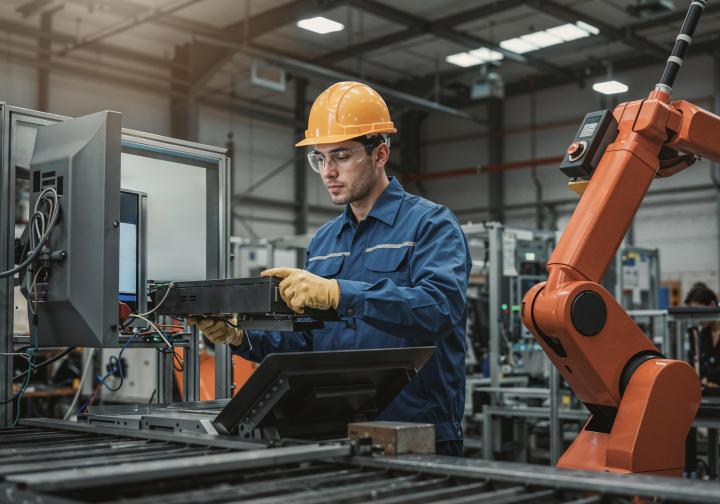Notifications

6 minutes, 38 seconds
-183 Views 0 Comments 0 Likes 0 Reviews

An automation system integrator plays a pivotal role in aligning cutting-edge technology with complex industrial processes to enhance efficiency and productivity. Whether you're looking to optimize manufacturing lines, automate data flow, or integrate IoT for real-time monitoring, automation system integrators bridge the gap between hardware, software, and your organization's operational goals.
This article explores what automation system integrators do, why they're essential in today's business landscape, and how to choose the right partner for your automation needs. Let's deep-dive into the value and opportunities they bring to various industries.
An automation system integrator is a professional or organization that specializes in designing, implementing, and managing automated systems. They integrate various technologies, such as programmable logic controllers (PLCs), human-machine interfaces (HMIs), robotics, and artificial intelligence, into a seamless operational system.
For example, in a factory setting, an automation system integrator might develop a system where conveyor belts, robotic arms, and machine vision technologies work cohesively to streamline production.
Their core objective is to improve performance, reduce operational costs, and ensure that businesses stay competitive in an increasingly automated world.
Automation is no longer a luxury; it’s a necessity for businesses that want to thrive. Companies across manufacturing, logistics, healthcare, and beyond are leveraging automation to stay ahead of the curve. Here’s why automation system integrators are indispensable:
Automation requires technical precision. With expertise in advanced technologies like cloud computing, machine learning, and robotics, automation system integrators create systems that are not only functional but also optimized for long-term success.
Each business has unique needs. Automation system integrators develop tailor-made systems, ensuring that the proposed solutions align with specific workflows, regulations, and operational goals.
While implementing automation comes with an upfront cost, a well-integrated system reduces long-term expenses. System integrators help identify areas of waste, streamline processes, and implement solutions that save both time and money.
Modern businesses rely on multiple software platforms and hardware systems. Automation system integrators ensure these components communicate effectively with each other, creating a unified and efficient ecosystem.
One classic example of industrial automation is in manufacturing plants. Automation system integrators streamline assembly lines by incorporating robotics for tasks such as welding, assembly, and quality control. This minimizes errors, boosts production speed, and enhances product consistency.
Automation in logistics ensures faster order fulfillment, precise inventory management, and real-time tracking. An integrator can develop a system where IoT devices, automated guided vehicles (AGVs), and warehouse management software work together seamlessly.
Automation extends beyond factories. Hospitals use automation to maintain records, track patient data, and even perform surgeries with robotic assistance. System integrators ensure that all medical devices and software are compliant and interconnected.
From smart grids to renewable energy automation, integrators play a critical role in enhancing energy efficiency and reducing environmental impact. They design systems that can monitor, optimize, and control energy consumption remotely.
Finding the right automation system integrator for your project is crucial. Here are some essential factors to consider:
Not all integrators are the same. Look for professionals with proven experience in your specific industry.
Ensure the integrator is skilled in the latest tools and platforms relevant to your automation goals. Whether it’s working with PLCs, SCADA systems, or cloud-based control systems, technology alignment matters.
Ask for case studies or client testimonials to gauge the quality of their past work. Success stories can indicate how the integrator adds value.
A great automation system integrator is a partner, not just a service provider. They should communicate effectively, offer long-term support, and adapt to your evolving business needs.
For businesses exploring automation, consider working with a trusted partner like Xtreme Automation LLC. Known for their expertise and commitment, they provide top-tier solutions tailored to your specific automation requirements.
The integration of advanced systems is no longer optional for companies aiming to remain competitive. By hiring the right automation system integrator, you not only enhance the efficiency of existing processes but also future-proof your organization in a rapidly advancing digital world.
Take the first step towards innovation by consulting industry experts who understand your challenges and can provide impactful solutions. Get in touch with a reliable partner like Xtreme Automation LLC to explore how automation can drive measurable improvements for your business.
By leveraging automated systems, you position your organization to achieve higher efficiency, reduce downtime, and gain a critical edge in an era driven by technological progress.

